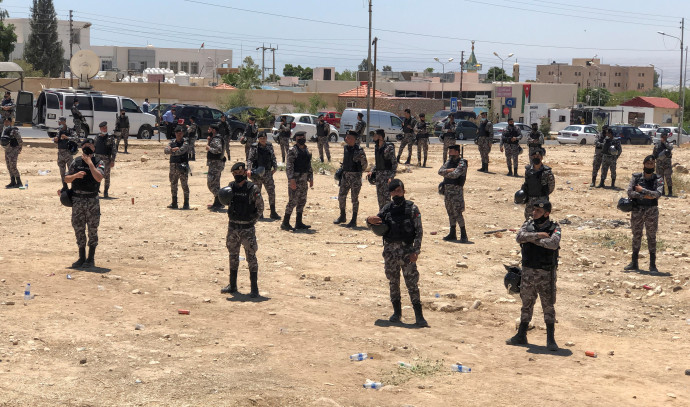The Battle of Karameh took place on March 21, 1968, in Jordan, pitting Israeli forces against a combined force of Palestinian fighters and Jordanian soldiers. Because the name for the site of the battle also means “dignity,” the battle has taken on multiple meanings for the Palestinians and Jordanians and is considered a victory for them. The battle is not often remembered in Israel. It is being spotlighted this year in Jordan and some Arabic-language media because of the war in Gaza.
The battle took place in the era after the 1967 Six Day War, which resulted in a rapid Israeli defeat of Jordan, Syria, and Egypt, and the decisive battle in which Israel conquered the West Bank.
In the Battle of Karameh, Palestinian groups, primarily Fatah, launched attacks on Israel. They had bases in Jordan among Palestinians living there. Israel was now facing the prospect of a conflict not only along the Jordan Valley but also along the Suez and could deteriorate into wars of attrition on two fronts. The IDF prepared for a rapid assault to defeat Fatah in Jordan and dismantle the terrorist infrastructure that was on the Jordanian side of the Jordan River. The raid was supposed to include paratroops and commandos, and it came following an Israeli bus was bombed on March 18 while driving in the Arava.
Prime Minister Levi Eshkol and the cabinet approved the attack; Moshe Dayan believed it would defeat an emerging “wave of terror” in the Jordan Valley. What was meant to target and overpower Palestinian groups with a mass of IDF troops ended up with the Jordanian army entering the fray. The battle became a slugfest stretching over dozens of kilometers of the Jordan Valley, concentrated around the town of Karameh. After fifteen hours, the IDF withdrew. The Jordanians and Palestinians see it as a victory.
Arab media reports on the historic battle
Al-Ain media in the UAE explained the battle’s importance in the region. In an article published on Thursday, it said the battle showcased that Arab unity could defeat Israel and that the myth of Israel’s invincibility in the wake of the 1967 war, was broken that day. “On this day, Jordanians, as well as Palestinians, celebrate the anniversary of the Battle of Karameh, which is the first Arab and Palestinian victory over the Israeli war machine after the defeat in 1967,” Al-Ain media said.
In Jordan, state media also noted that “the Royal Hashemite Documentation Center unveiled on Thursday a historical artifact commemorating the enduring legacy of the Battle of Karameh. This artifact, dated March 24, 1968, features a collection of articles from the Jordanian newspaper Al-Dustour, chronicling the events surrounding the Battle of Karameh, which unfolded on March 21, 1968.”
The report notes that “according to a statement, the document prominently displays excerpts from a press conference hosted by the late King Hussein bin Talal. This conference aimed to elucidate the realities of the battle, showcasing the valor displayed by the Jordan Arab Army in repelling the ruthless Israeli aggression.”
The commemoration describes the bravery of the Arab soldiers in the Jordanian army. The historic report also notes “the geopolitical significance of the battle, emphasizing the pivotal victory secured by the Jordanian army against Israeli aggression. The newspaper also documented international support for Jordan’s right to defend its territory. The Documentation Center emphasized the significance of this artifact, as it serves as a testament to a proud chapter in the history of the Hashemite Kingdom of Jordan.”
This is important because the commemoration and reports clearly tie this to the current state of affairs. Israel was also portrayed in the region as having a powerful army before October 7. However, there are now questions in the region about Israel’s capabilities. Iran has knitted together multiple arenas against Israel. Israel has evacuated residents from the north as Hezbollah attacks with impunity.
Some wonder whether Israel can defeat or deter Hezbollah or even fight a multi-front war like in 1967. While Israel defeated three armies in three countries in 1967, today, Israel is still fighting Hamas in Gaza after five months. Hamas has been able to reconstitute itself in northern Gaza, and Hamas continues to control Rafah.
In addition, Israel continues to have to rely on Qatar, a US ally that hosts Hamas, for hostage talks. Israel has not been able to free most hostages via military means, even though the hostages are held in a small area of Gaza, close to where Israeli forces are operating. Clearly, the commemorations of the 1968 battle are being highlighted today to bring up questions about Israel’s capabilities and also portray the Palestinians as being capable, with Arab support, of defeating Israel. This has ramifications for regional policies and shifts in the emerging multi-polar world.







